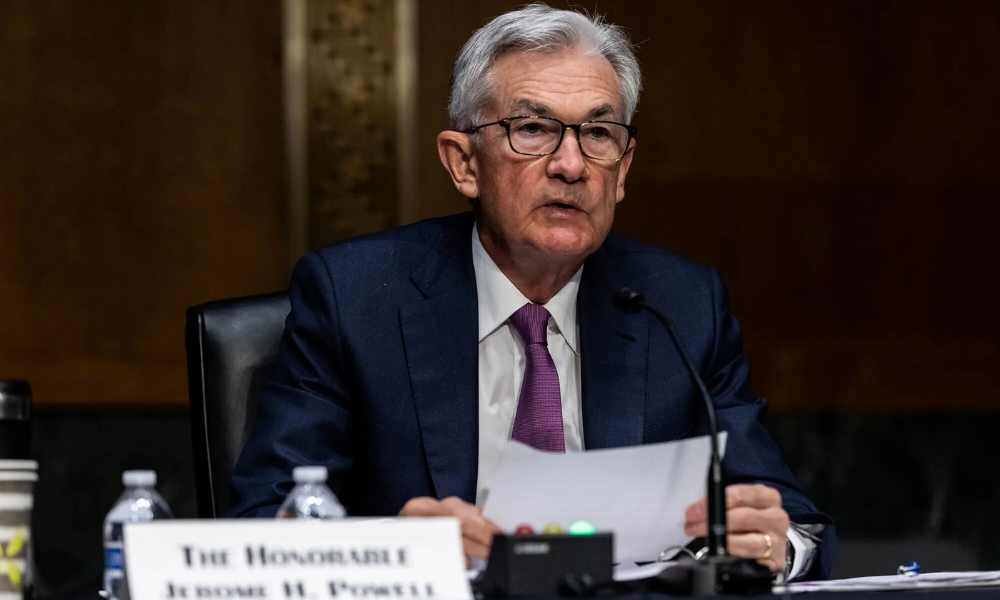
Jerome Powell could begin to fix the mess he helped create even if it might upset the markets for a bit.
He could raise short-term interest rates higher than investors have priced in and announce that inflation is so bad that the Fed will significantly reverse the size of its balance sheet.
Of course, Powell won’t do that when he unveils his new interest-rate policy Wednesday because in doing so he would have to admit to one of the biggest monetary-policy blunders in recent history.
It was Powell who promoted the panacea of “transitory inflation.” As we all know now, it was a cynical PR stunt designed to fool the American people that there would be no consequence to his historic money printing (in the trillions), low-interest rates, and support of President Joe Biden’s trillion-dollar spending sprees well past the time that COVID was squeezing growth from the US economy.
Talk about cynical: The “transitory inflation” meme also helped Powell win Biden’s blessing and reappointment to another term as Fed chair since it helped the president sell his spending plans until Sen. Joe Manchin said enough.
Enough should have happened sooner, of course. Between the money spent by Biden that literally paid people not to work and the dollar printing by Powell, our Fed chair is now finding himself in the tightest of tight spots.
He is tasked with corralling a Consumer Price Index rise of nearly 8% for February, a measure of consumer inflation that is certainly in the double digits today since it doesn’t take into account that war in Europe.
That means additional inflation via higher oil and gas prices after we imposed sanctions against Russia over its invasion of Ukraine.
A belligerent China, meanwhile, is said to be taking advantage of our economic weakness and the global unrest by discussing buying Saudi oil denominated in yuan instead of US dollars.
That would be a watershed moment underscoring that the US dollar may soon no longer be the world’s reserve currency.
| Revealed In 2022 Best Day Trading Strategies for Beginners |
Powell, of course, has debased the dollar with his monetary-policy overkill. A more thoughtful soul would admit these mistakes and the pickle he’s in and reverses course, telling the American people that if he doesn’t act now, and decisively, the economy could end up in shambles.
Inflation is a beast that’s difficult to tame once it’s fully unleashed. Wages rise in reaction to price increases and the vicious cycle leads to economic ruination because wages can never really keep up while foreign creditors dump dollars.
It took Paul Volker years to squeeze spiraling inflation out of the economy in the late 1970s and early 1980s with stratospheric interest rates and a deep recession.
Powell could say by taking strong action — a 50-basis-point increase in the so-called Fed Funds Rate (the shortest of short-term rates) and a significant move to immediately reduce the size of the Fed balance sheet (decreasing the money supply) — we might avoid that fate.
The markets might wobble for a while, and, yes, the economy might slow, but we would be spared down the road the economic Armageddon that has stricken other countries that experimented with the level of money printing Powell did over the past two years.
But Powell will undoubtedly fill the room with bromides about the inherent strength of the US economy, announce a measly 25-basis-point increase and say something modest about the Fed’s balance sheet that he will begin to unwind slowly.
Related Article
Asian Markets Struggle As Hong Kong Dives Again, Oil Retreats
Warren Buffett's Berkshire Hathaway Stock Price Reaches $500,000 For The First Time
Most Asian Markets Down As Traders Track Ukraine Invasion
Markets might even cheer, but Powell is only delaying the inevitable. If he doesn’t move decisively. private investors could take measures into their own hands, selling dollars and bonds in the face of the inflationary threat, leading to widening deficits and higher debt costs. Source: NYpost.